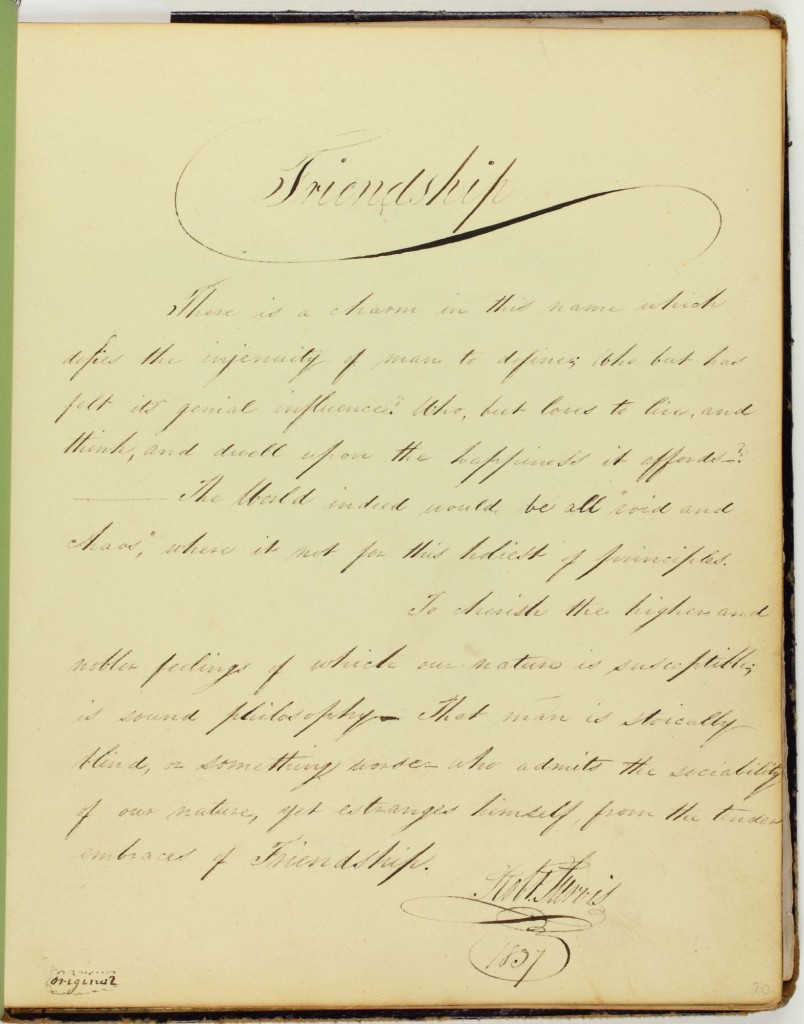Preface (3)
6|7|8|9|10|11-12|13|14|15|16|17|18|19|20|21|22|23|24|25|26|28|30|31|32|33
34|35|36|39|42|44|47|49|51|52|53|54|55|56|57|59|62| 63|64-68|70|73|75

Friendship
There is a charm in this name which defies the injenuity [sic] of man to define; who but has felt its genial influence? Who, but loves to live, and think, and dwell upon the happiness it affords?
The World indeed would be all “void and chaos,” where [sic] it not for this holiest of principles.
To cherish the higher and nobler feelings of which our nature is susceptible, is sound philosophy. That man is stoically blind, or something worse—who admits the sociability of our nature, yet estranges himself, from the tender embraces of Friendship.
Robt. Purvis
1837
Original
African American anti-slavery activist Robert Purvis (1810-1898) contributed this original sentimental meditation entitled “Friendship” to the Amy Matilda Cassey album in 1837. Purvis’s “Friendship” exemplifies the literary genre of romanticism in its prizing of human emotion and intuition – “our nature” – over intellectual reason. It is not scientific rationalization that organizes the “World” and mitigates “void and chaos,” but human relationships and the “happiness” they afford. The irony of friendship, as portrayed in Purvis’ prose, is that it is undefinable, operating outside of intellectual discourse, and yet its “tender embraces” are sought by virtually all humans.
